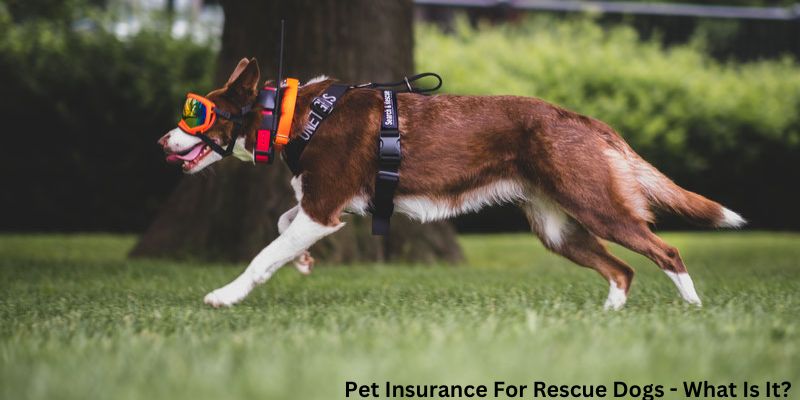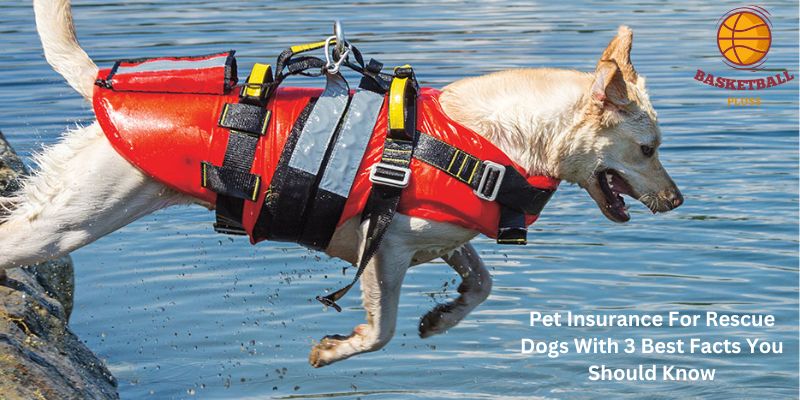Welcome to basketballpluss.com blog where we delve into an important topic that many pet owners often overlook – pet insurance for rescue dogs. In this post, we will explore the various aspects of pet insurance and how it can benefit your four-legged friend. So, let’s dive in and discover why pet insurance is a valuable investment for your beloved rescue dog.
1. Pet Insurance For Rescue Dogs – What Is It?

A pre-adoption paperwork could be required when you adopt a pet from a shelter. You’ll be given a number of questions, one of which will be on your knowledge of pet care expenses, including medical expenses. This is due to how rapidly the expense of veterinary care for a sick or wounded pet may mount. However, that is where dog insurance comes into play.
A rescue dog’s vet fees will be covered by pet insurance in the event that it needs care due to an injury or a medical condition. There are four primary forms of pet insurance available: accident-only, time-limited, lifetime, and maximum benefit. There are other insurance coverage levels as well, and the plans cover everything from emergency boarding costs to dental care for canines.
2. Pet Insurance For Rescue Dogs – How Can We Get It?
If you’re interested in learning more about the background of the dog or cat you’ve adopted, ask the rescue organization for a thorough description of where the animal came from before it arrived at the shelter and any medical concerns it may have. Since it isn’t always available, you shouldn’t let it influence your decision to adopt or not.
However, knowing whether your new pet was raised in a challenging environment might be useful. For instance, a timid dog could require additional care and attention before feeling at home in your house.
acquiring a pet examined by a veterinarian is the first step in acquiring pet insurance. As soon as a pet is brought into a shelter, a physical examination is often conducted, therefore this is typically handled by the rescue group. Then, the shelter can provide you a thorough report on the general health of your dog or cat.

If the age of your pet is unknown, the veterinarian will guess it. The veterinarian’s notes will include any conditions that may be regarded as pre-existing. This aids in your understanding of the health of your rescued pet as well as that of the insurance providers from whom you have requested quotations.
You should get your new pet a veterinarian examination as soon as you can after adopting them, even if it’s unlikely that they would require one if they haven’t had healthcare in a while. When individual pet owners take in stray animals or acquire a pet from a friend or relative who can no longer care for them, this might occasionally happen. Updating your dog’s vaccines may be necessary as well.
Possibly the most critical step in adopting a rescue is documenting your pet’s health condition. However, there are a few more preparations you’ll need to do before bringing your rescue dog (or cat) home. If you are interested in similar topics, you can also refer to Liberty Mutual Pet Insurance Reviews
3. Pet Insurance For Rescue Dogs – How Much Does It Cost?
It costs money to find a new home for a rescue dog. In the UK, you might not be required to pay for your rescue dog (some are free, while others want a nominal donation to help the shelter’s expenses). Owning a dog, however, will always come with expenses for things like food, a lead, and toys. The price of veterinarian care is another consideration. You may fortunately get your pet insurance to cover that.

The price of insurance for a dog in rescue should be the same as for any other dog. Insurance companies are much more concerned with factors like your dog’s age, breed, and residence than the fact that you have a rescue dog. These elements will much more influence your premiums when determining risk.
This is why:
- Breed: Some dog breeds are more likely than others to have particular medical issues. Purebred and pedigree dogs frequently succumb. Pugs and French bulldogs, for instance, frequently struggle with breathing. Corgis and dachshunds are prone to excruciating spinal issues. Additionally, bigger dogs like St. Bernards can develop hip dysplasia, arthritis, and lameness.
- Location: Different regions of the UK charge different amounts for veterinary services. For instance, vets in certain regions of the West Midlands and Scotland may charge more than those in London and the South East. Therefore, you could spend more if you’re looking for pet insurance for rescue dogs close to Milton Keynes than if you were in Dundee, for example.
- Age: When insuring a rescue dog, age will have the most influence on the cost of your premiums. An illness that needs treatment is more likely to develop in an older dog’s body. Additionally, some (but not all) insurance companies set a maximum age for new plans.
Conclusion
Pet insurance for rescue dogs offers valuable protection and peace of mind for both the pet owners and the dogs themselves. By providing financial assistance for unexpected medical expenses, pet insurance ensures that rescue dogs can receive the best possible care without burdening their owners with excessive costs. Additionally, pet insurance often includes coverage for preventive care, allowing rescue dogs to receive regular check-ups and vaccinations to maintain their health and well-being. Overall, investing in pet insurance for rescue dogs is a responsible decision that can help provide a safe and secure future for these beloved companions.

